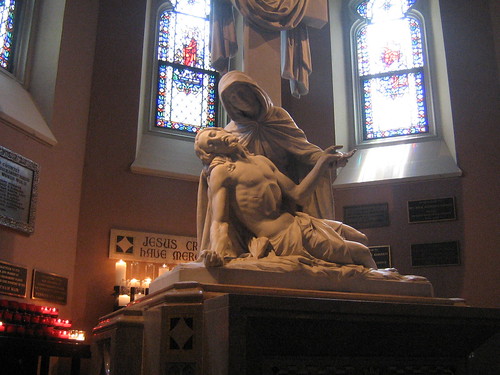
Yes, I love it and I knew I'd love it, though I didn't love it from the very first sentence. I got a little bogged down in the Foreward and so skipped ahead to the Introduction (which was quite important as well as engaging) and am now in the midst of the first chapter. This book covers, in particular the part of Jesus' public life from the Baptism in the Jordan until the Transfiguration. I'm particularly intrigued by the upcoming chapter on the Sermon on the Mount. The Beatitudes have always intrigued me, but also mystified me just a little.
The first chapter is devoted to Jesus' Baptism in the Jordan. Here's a little taste of what the Holy Father teaches us about the significance of this event...
Looking at the events in light of the Cross and Resurrection, the Christian people realized what happened: Jesus loaded the burden of all mankind's guilt upon his shoulders; he bore it down into the depths of the Jordan. He inaugurated his public activity by stepping into the place of sinners. His inaugural gesture is an anticipation of the Cross. He is, as it were, the true Jonah who said to the crew of the ship, "Take me and throw me into the sea" (Jon. 1:12). The whole significance of Jesus' Baptism, the fact that he bears "all righteousness," first comes to light on the Cross: The Baptism is an acceptance of death for the sins of humanity, and the voice that calls out "This is my beloved Son" over the baptismal waters is an anticipatory reference to the Resurrection. This also explains why, in his own discourses, Jesus uses the word baptism to refer to his death (cf. Mk 10:38; Lk 12:50).
The Pope goes on to explain how "the Eastern Church has further developed and deepened this understanding of Jesus' Baptism in her liturgy and in her theology of icons." Interesting and beautiful concepts to stew on!










